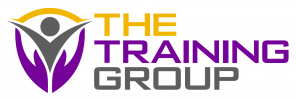Unit 1: Understanding roles, responsibilities and relationships in education and training
Learners will be taught how to analyse the application of pedagogical principles, use assessments, plan lessons and prepare for the classroom environment.
Understanding and using inclusive teaching and learning approaches in education and training
Planning to meet the needs of learners in education and training (Copy 1)
Assessing learners in education and training (Copy 1)
Using resources for education and training (Copy 1)
Unit 2: Teaching, Learning & Assessment In Education & Training (Copy 2) (Copy 1)
Learners will be taught about their responsibilities as educators, educational legislation, meeting the needs of the learners and how to teach in a student-centred manner.
Unit 3: Theories, Principles & Models In Education & Training (Copy 2) (Copy 1)
Learners will be taught ways in which theories, principles and models of learning can be applied to teaching, learning and assessment.
Unit 4: Wider Professional Practice & Development In Education & Training (Copy 2) (Copy 1)
Learners will be taught about the concepts of professionalism and dual professionalism in education and training and how they can apply this within the classroom.
Unit 15: Inclusive Practice (Copy 2) (Copy 1)
Learners will be taught how to review the impact of personal, social and cultural factors on learning and teaching.
Unit 17: Preparing for the mentoring role (Copy 2) (Copy 1)
Learners will be taught how to analyse the skills and qualities required for a the mentoring role teachers play in education.
Unit 25: Developing, using and organising resources in a specialist area (Copy 2) (Copy 1)
Learners will be taught how to analyse how theories, principles and models of inclusive curriculum design can be used to inform resource development in own specialist area.
No questions yet
Be the first to ask your question! You’ll be able to add details in the next step.
Ask a new question
Add an answer
Skills and Qualities Required for a mentoring role
In a mentoring role, several vital skills and qualities are essential for success. Active listening is crucial, as it allows mentors to fully understand the needs, goals, and concerns of their mentees. Mentors can provide meaningful guidance and support by attentively hearing and processing the information shared by their mentees. Empathy is another vital quality, as it enables mentors to put themselves in their mentees’ shoes, fostering a deeper connection and understanding of their emotions and perspectives.
Patience is an essential attribute for mentors, as mentees often need time to process new information, develop skills, and overcome challenges. Trust-building is the foundation of any successful mentoring relationship, as it creates a safe and supportive environment where mentees feel comfortable sharing their experiences and challenges. Adaptability is also essential, as mentors must be able to adjust their approach according to the unique needs, learning styles, and circumstances of their mentees.
Cultural sensitivity is crucial in a mentoring role, as it enables mentors to recognize and respect the diverse backgrounds and experiences of their mentees, promoting inclusivity and understanding. Lastly, goal-setting skills are vital for mentors, as they help both the mentor and mentee to establish clear, achievable, and measurable objectives that guide their mentoring relationship and facilitate the mentee’s personal and professional growth. By possessing these skills and qualities, mentors can effectively support, empower, and guide their mentees on their journey toward success.



